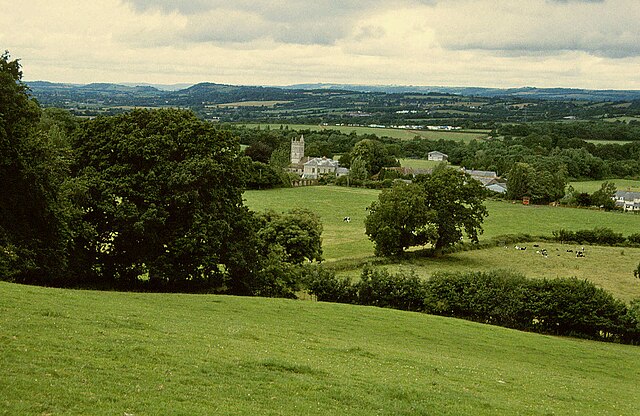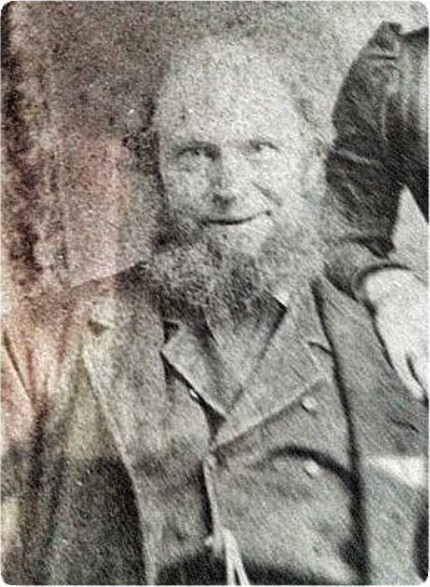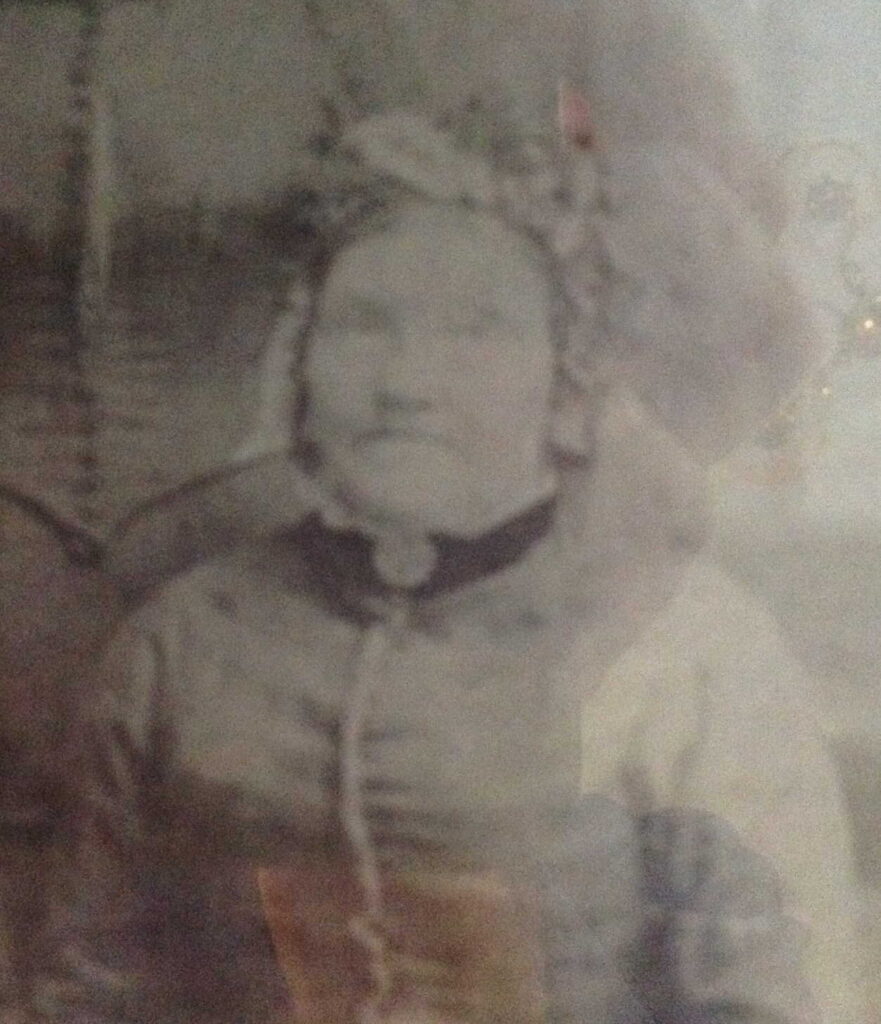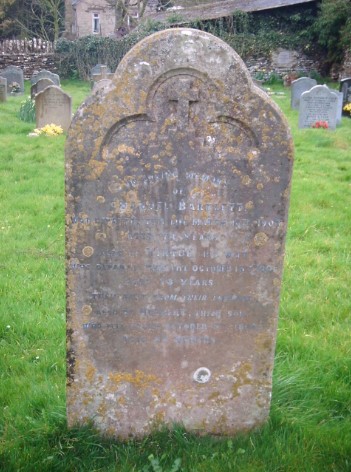Introduction
Emanuel Bartlett lived at Hill End, Hardington, for his entire life. He was a farm labourer who stood out for his responsibility and respectability. By his mid-fifties, the country’s political landscape was changing to offer individuals like Emanuel more opportunities. He made a small contribution to this change by serving on the committee of Hardington’s first Liberal Club. He and his wife instilled confidence and ambition in their children, and all of whom eventually left the village to pursue their own paths. Two of their sons joined the army, another joined the Metropolitan Police, and the fourth became a farmer. Their daughters also led fulfilling lives: the eldest married a carpenter, the second became a hotel owner, the third married a coachman, and the youngest became a schoolteacher and married a farmer.
Childhood
Emanuel was born at Hardington in about 1829, the youngest of ten children born to Robert and Mary Bartlett. His father was a weaver until the late 1840s, when he became a farm labourer. Emanuel’s siblings included George and Henry.
Marriage
On 21 September 1848, Emanuel married Virtue Chester at Hardington. Emanuel was 19 years old, while Virtue was 24. Both signed the marriage register.
The marriage recorded Virtue’s surname as “Chester otherwise Purchase” because she was the illegitimate daughter of Harriet Chester, who married Edward Purchase in 1838. Her mother died of paralysis on 5 February 1855 at the age of 55.[1]
Early married life
Emanuel and Virtue settled at Hill End, Hardington, living in a house owned by Isaac Kiddle until 1867, and later by Lord Portman. At the time of the 1851 census, Emanuel was a farm labourer, Virtue was a weaver of canvas, and they had a one-year-old daughter named Emma.
By April 1861, their family had grown to five children, and Virtue was no longer working as a weaver.
By April 1871, the two oldest children had left home, and another four had been born, though one died in infancy. Emanuel’s widowed mother lived in the adjacent household, possibly in part of his house.
Extra responsibilities
Although Emanuel was only a farm labourer, he was sometimes given additional responsibilities. An advertisement of 8 February 1867 aimed at teazle growers interested in renting between 10 and 40 acres of heavy land 3 miles from Crewkerne, directed interested parties to apply to Emanuel for particulars.[2] Seven years later, in September 1874, he was tasked with showing potential bidders lots of timber at Haselbury Park.[3]
Allotment
Emanuel’s sense of responsibility extended to growing food for his family on his allotment. Between 1859 and 1890, he regularly won an annual cash prize from the Live and Let Live Labourers’ Friendly Society for his allotment, receiving between 6s and 9s.[4]
Narrow escape
For a labouring man, having a good character could be crucial. When Emanuel was 35, it saved him from a jail sentence. On 7 December 1864, he was charged with stealing a trap belonging to G Seeley of Pendomer, gamekeeper to H.B. Batten Esq. Seeley testified that on 2 December, he saw Emanuel go to a trap that the keeper had set in a field and pick it up. In his defence, Emanuel said that he believed the trap belonged to another keeper, whom he knew, and he was going to ask him about it. The magistrates informed Emanuel that he could have faced a three-month jail sentence if there had been a game in the trap, but they dismissed the case due to his good character.[5]
Politics
Following the Third Reform Act of 1884, the two main political parties sought to establish local political groups to bolster grassroots support. The formation of a Liberal club at Hardington in June 1885 saw Emanuel elected to the committee with eight others.[6]
Later married life
In his mid-fifties, Emanuel undertook draining work at Pylle, located about twenty miles north of Hardington. The 1881 census recorded him as a foreman, working alongside his son, Charles, while Virtue remained at home at Hill End, with three children.[7]
The 1891 census recorded Emanuel and Virtue living in a four-room house at 369 Hill End, with their children Joseph and Mary Ann. Mary Ann married at South Perrott on 3 January 1900, while Joseph joined the Somerset Light Infantry on 25 May 1900.
Death
Virtue died on 13 October 1901 at the age of 78. Emanuel died on 10 March 1903 at the age of 74. Following his death, a sale of furniture, potatoes, cider, hay, poultry and tools took place at Hill End.[8]
Children
Emanuel and Virtue had nine children, but the youngest died in infancy.
1849- Emma (married William Highmore Coggan, a carpenter, in 1874; resided at Closworth, Bath and Yeovil; died in 1935);
C 1852- George (serving with the Rifle Brigade by the age of 19; later whereabouts unknown);
Circa 1854- William George (married Maria Saunders in 1882; became a farmer at Halstock Leigh; died in 1891 due to a cart accident);
Circa 1857- Harriet (married Elijah Trask in 1879; kept the Duke of Edinburgh Inn at East Coker before becoming hotel owner in Yeovil; died childless in 1938, leaving an estate valued at £1,226 8s 6d);
1860- Charles (served with the Metropolitan Police from 1882 to 1908; died in 1938);
Circa 1862- Jane (married George Aplin, a coachman, in 1890; resided at Durston, Dulverton, Pitminster and Taunton; died in 1925);
1864- Joseph (enlisted in the Somerset Light Infantry in 1900; later whereabouts unknown);
1866- Mary Ann (became a schoolteacher at South Perrot; married Frederick Herbert Studley, a farmer, in 1900; died in 1939);
1867-Herbert (died aged 20 months).
References
[1] Death certificate of Harriet Purchase.
[2] Western Gazette, 89 February 1867, p.4.
[3] Pulman’s Weekly News and Advertiser, 8 September 1874, p.2.
[4] Bridgwater Mercury, 26 October 1859, p.6; Western Gazette, 13 October 1865, p.6; Western Gazette, 14 October 1870, p.7; Western Gazette, 25 October 1872, p.7; Western Gazette, 22 October 1875, p.6; Western Gazette, 8 November 1878, p.8; Devon and Somerset News, 13 October 1881, p.6; Taunton Courier and Western Advertiser, 17 October 1883, p.7; Western Gazette, 3 October 1884, p.6; Western Gazette, 24 September 1888, p.3; Western Gazette, 10 October 1890, p.3.
[5] Taunton Courier and Western Advertiser, 14 December 1864, p.3.
[6] Devon and Somerset News, 16 June 1885, p.6.
[7] Charles joined the Metropolitan Police the following year.
[8] Western Gazette, 17 April 1903, p.1.





